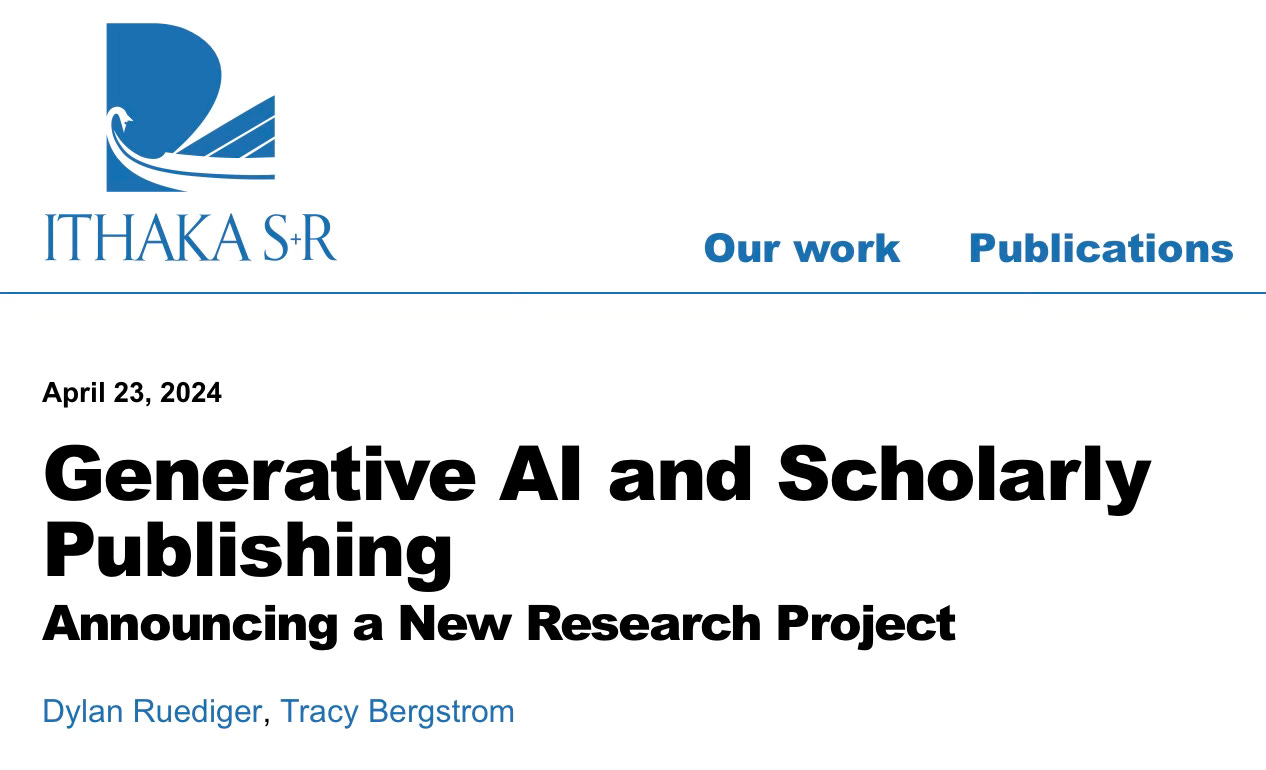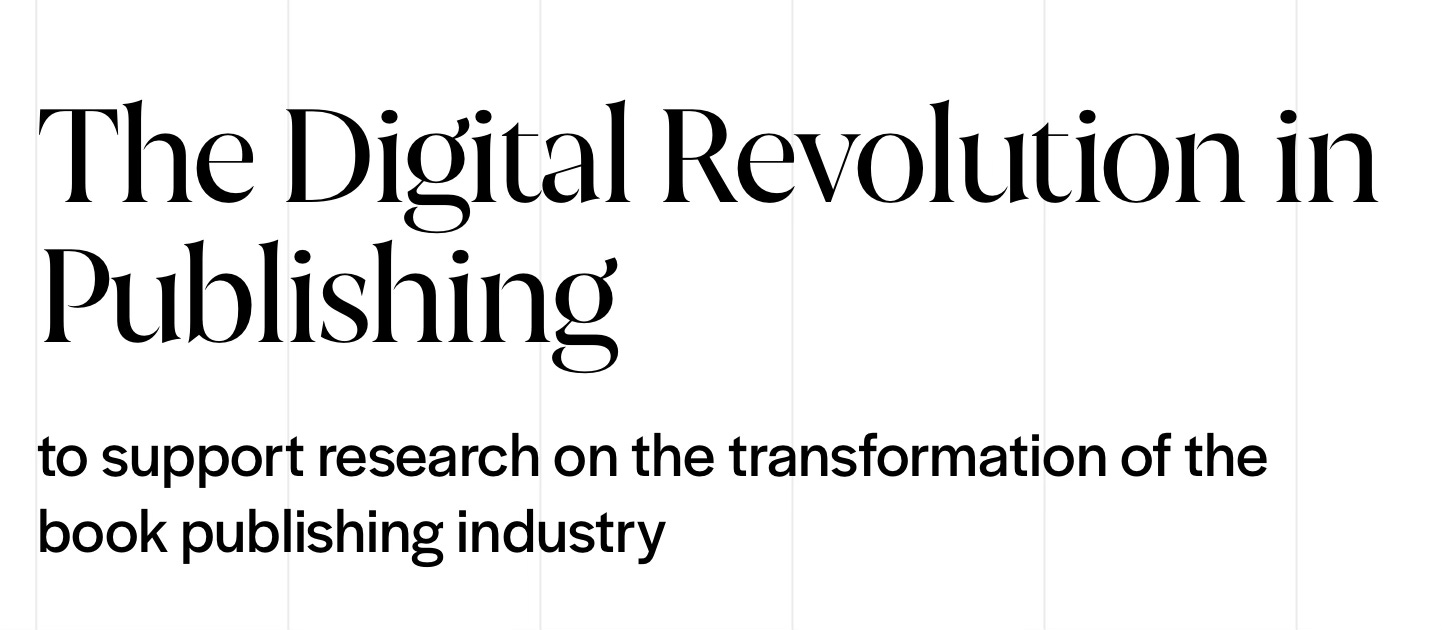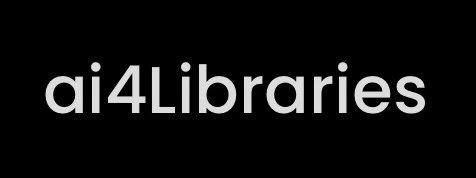I want to briefly sketch impressions of a publishing subculture that I think of as Lanyard People—professionals who spend a lot of time at conferences and other meetings, often involving not just publishing but publishing-adjacent groups like academic libraries, think tanks, and grant-givers. This is not a subculture principally concerned with sales, but it can exert a significant influence when it comes to publishers’ priorities, particularly at places like the university presses where I’ve spent most of my career. As social creatures, publishing professionals naturally seek validation from their peers, and if they’re spending a lot of time among people with lanyards, it’s worth thinking about what they may be hearing from their networks.
Paradoxically, I see the Lanyard People’s un-commercial subculture (these are mostly librarians and think-tankers, after all) as prone to reinforcing the priorities of the most aggressive commercial publishers. Artificial Intelligence is the prominent example at the moment. You’d think the push for Book World to integrate with AI would be coming from the likes of Penguin Random and Wiley, and you’d be right. But Library Journal and Ithaka (home to JSTOR) are also talking a lot about AI, and not—as far as I can tell—critically. It’s a curious and I think understudied convergence.
What I’d really love to see is an ethnography of Lanyard World. Since I’m not an anthropologist, all I can do is offer some partial and situated impressions.
—The further people get from actually making books, the greater the abstraction in how books are talked about and what gets depicted as the important set of issues confronting publishing. The bias in favor sweeping changes like Open Access and Artificial Intelligence is a predictable outcome of Lanyard World’s priorities. The same goes for the lack of attention to practical initiatives like making books more affordable. Because the subculture is mostly talking about making books instead of making books, the incentives detach from pragmatic considerations and center big (often Silicon Valley–friendly) ideas. This is a world of disruptors, not maintainers, and the craft of publishing requires a lot of maintenance.
—Where a big book review or the like might motivate conventional book publishers, the currency in Lanyard World seems to be the press release. Getting a grant to revolutionize publishing generates a lot of attention and professional respect. On the other hand, attention to the outcomes of these revolutionary grants and initiatives tends, in my experience, to generate little or no coverage. (Ten years ago the university where I worked was enthralled with a grant-supported Open Access publishing start-up that seems never to have actually started up, and to have now been scrubbed from the internet. There were no press releases about its demise, and no reckonings with what that money might have supported in the realm of traditional publishing.)
—Fear of missing out plays a big role: In Lanyard World, one doesn’t want to be seen as having missed the boat when it comes to something like AI. To my mind, this anxiety can overwhelm the need to actually listen to what authors and readers want. I hear tons of concerns about AI (as I’m sure lots of rank-and-file publishing workers do), but I wonder whether these concerns come up in conversations among Lanyard People.
—Discursive fields delineated by Lanyard People (“Ascending into an Open Future,” etc.) can become self-perpetuating, in part because people employed in this sector may, without articulating it, understand their work as contingent on the problem continuing to be posed. Conventional publishing workers generally have goals that are measured in practical metrics like sales, review attention, and awards. The desired outcomes for, say, a scholarly communications librarian seem fuzzier to me. The incentives may line up so that publishing is perpetually kept in the crosshairs as something to solve.
—The predominant archetype in Lanyard World strikes me as the Thought Leader. While the shaggier indie vibe at a small publisher may feel similar to that at an independent bookstore or alt weekly, the feel in Lanyard World can, to me, be very corporate—but paradoxically without sales. It’s a surprising and potent combination of slick trappings and no revenue, which may lead to perceived boldness trumping the concerns that almost necessarily drive day-to-day work when there are books to be made and sold. Critique capitalism all you want, but it can (at least at more modest scales) work to help ground participants so that they don’t become invested in disruption for disruption’s sake.
Obviously my broad impressions of Lanyard People flatten a lot of distinctions; everybody is more than one descriptor. I hope my provocation will inspire awareness instead of criticism. The key issue, I think, is how to get traction for ideas that don’t mesh with Lanyard World’s priorities (or, on the other side of the equation, with for-profit players’ most mercenary impulses). Again, the big one now is Artificial Intelligence. People are livid that publishers’ content is being sold to train AI, and they may assume that their concerns are well represented when nonprofit publishers, librarians, think-tankers, and the like gather in their lanyards. I’m not confident that’s the case, and I wonder what to do about it.









Great post and I totally agree. I do wonder whether in some cases, especially with people who work for think tanks and nonprofits, the pro-silicon valley message isn't actually a consequence of their economic incentives, rather than their distance from them. Worth thinking about who is funding these initiatives, perhaps? I'm thinking about the parallel case of education: the Gates Foundation has funded absolutely massive amounts of research--there is really nothing else like it--that, to the untrained eye, codes extremely "left wing" but in reality it's done an enormous amount to undermine confidence in the public school system and promote school choice and charters as ideologies. It's ostensibly leftist but in its concrete effects, especially on teachers and their unions, very Silicon-Valley-libertarian... which doesn't feel like a coincidence given where the money comes from.
Thank you for being frank in these vapid times, Derek. Refreshing.